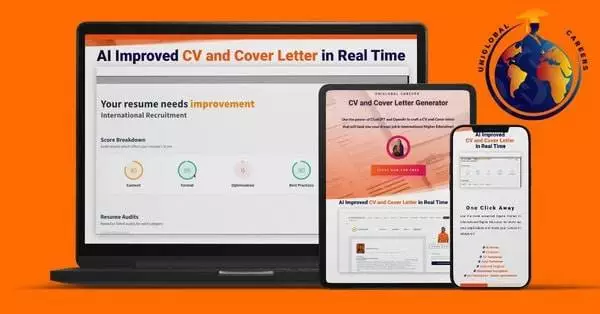Artificial Intelligence (AI) has been revolutionizing various industries for quite some time now. It has helped in boosting efficiency, productivity, and accuracy, as well as enhancing the overall experience of users. The education sector has also begun to realize the potential of AI, specifically in the realm of Higher Education conferences. In this article, we will delve into the benefits of using AI in Higher Education conferences and explore the different ways it can bring about a positive change in the conference landscape.
Understanding the Role of AI in Higher Education Conferences
Before diving into the benefits of AI usage in Higher Education conferences, it is crucial to understand its evolution in the education sector. In recent times, AI has emerged as a powerful tool in transforming education, including conferences. Its significance in the education sector is attributed to its ability to analyze data and personalize content. With the improved machine and deep learning algorithms, AI can also identify patterns and make decisions autonomously.
The Evolution of AI in the Education Sector
The use of AI in education has emerged from the developments and improvements in natural language processing, machine learning, and cognitive computing. AI has helped in revolutionizing the education sector by bringing about a transformational change in the way students learn and interact with educators. It has facilitated personalized learning, enhanced student engagement, and provided personalized recommendations.
Key AI Technologies used in Conferences
In Higher Education conferences, AI can be employed in various forms, such as chatbots, virtual assistants, machine learning algorithms, natural language processing, and predictive analytics. These AI technologies can bring about a paradigm shift in how conferences are organized, managed, and experienced by attendees.
Enhancing the Conference Experience with AI
Personalized Content and Recommendations
One of the most significant advantages of using AI in conferences is its ability to analyze data and provide personalized content and recommendations to attendees. By analyzing the attendees’ search history, AI can suggest sessions and workshops suited to their interests and preferences. This feature enhances the overall experience of attendees, providing them with a personalized and relevant conference experience.
For instance, imagine attending a conference on artificial intelligence and being bombarded with sessions and workshops that do not align with your interests. It can be frustrating and unproductive. However, with AI-powered personalized recommendations, attendees can focus on attending sessions that are relevant to their interests, leading to a more fulfilling and productive conference experience.
Moreover, AI can also suggest relevant reading materials, videos, and podcasts to attendees, enabling them to deepen their knowledge and understanding of the conference topic.
Improved Networking Opportunities
Networking is an essential aspect of conferences. However, it can be challenging to identify people with similar interests and engage in meaningful conversations. AI can help overcome this challenge by recommending people to connect with based on their interests and preferences. AI-powered matching algorithms can identify the most suitable matches for attendees, enabling them to connect and exchange knowledge with like-minded individuals.
Furthermore, AI can also facilitate networking by suggesting relevant conversation topics and icebreakers to attendees, making it easier for them to start a conversation and build meaningful connections.
Streamlined Event Management
Organizing a conference can be a daunting task, involving several time-consuming and tedious tasks such as scheduling, registration, and payment processing. AI can simplify event management by automating these tasks, reducing the workload on conference organizers and freeing up resources to focus on more strategic aspects of event planning and execution.
For example, AI-powered chatbots can handle attendee queries, providing instant and accurate responses, reducing the need for human intervention. Similarly, AI-powered scheduling software can optimize the conference schedule, ensuring that sessions and workshops do not overlap, and attendees have enough time to travel between different venues.
In conclusion, AI has the potential to revolutionize the conference experience, making it more personalized, engaging, and productive for attendees while simplifying event management for organizers. As AI technology continues to evolve, we can expect to see more innovative solutions that enhance the conference experience further.
Facilitating Knowledge Exchange and Collaboration
Conferences are a great way to learn new things, meet people, and exchange ideas. However, attending a conference can be overwhelming, especially if you are new to the field or the conference itself. To make the experience more engaging and meaningful, conference organizers are turning to AI-powered technologies.

AI-powered Discussion Forums and Q&A Sessions
Discussion forums and Q&A sessions are an integral part of any conference. They provide attendees with an opportunity to ask questions, share their experiences, and learn from others. However, these sessions can be chaotic, with multiple conversations happening simultaneously. AI-powered chatbots can help to analyze the discussion and provide personalized recommendations and responses to attendees. This not only improves the learning experience but also ensures that attendees get the most out of the conference.
Real-time Language Translation
Conferences often have attendees from diverse backgrounds and speaking different languages. Language barriers can hinder communication and make it difficult for attendees to engage in meaningful discussions. Real-time language translation powered by AI can help to overcome these barriers and facilitate better communication between attendees. This feature enhances the conference’s inclusivity and enables attendees to engage in meaningful discussions, irrespective of their linguistic background. It also helps to create a more welcoming and inclusive environment for all attendees.
Virtual and Augmented Reality for Immersive Learning
Virtual and augmented reality powered by AI can provide attendees with immersive learning experiences that are not possible in traditional conferences. By using VR and AR, attendees can explore different scenarios and learn in a much more engaging and interactive way. This technology can also help to break down complex topics into easily digestible parts. For example, attendees can use VR to explore a new product or service and see how it works in real-time. This not only improves their understanding but also makes the learning experience more enjoyable.
Overall, AI-powered technologies are transforming the way we learn and collaborate at conferences. They are making the experience more engaging, inclusive, and meaningful. As AI continues to evolve, we can expect to see even more exciting innovations in the future.
Analyzing Conference Data for Better Insights
Conferences are an essential part of the business world, and they provide a platform for attendees to connect, learn, and share ideas. However, organizing a successful conference can be a daunting task, and conference organizers need to ensure that they provide a fulfilling experience for attendees. One way to achieve this is by analyzing conference data with the help of AI.

Identifying Trends and Popular Topics
AI can analyze conference data to identify trends in attendee interests and preferences. This feature can help conference organizers identify popular sessions, workshops, and speakers, enabling them to improve the conference experience for attendees. By identifying popular topics, organizers can ensure that they provide relevant content that resonates with attendees. This will not only increase attendee satisfaction but also improve the overall success of the conference.
For example, if AI analysis reveals that attendees are more interested in workshops on digital marketing, organizers can plan to include more sessions on this topic in future conferences. This will help attract more attendees and increase engagement among existing attendees.
Evaluating Attendee Engagement and Satisfaction
AI can facilitate the evaluation of attendee engagement and satisfaction through data analysis. By collecting feedback and analyzing it, AI can help conference organizers measure the effectiveness of the conference and identify areas for improvement. This analysis can provide valuable insights into attendee behavior, preferences, and satisfaction levels.
For instance, AI analysis can reveal that attendees are more engaged during interactive sessions than during traditional lectures. This information can help organizers plan for more interactive sessions in future conferences, which will increase attendee engagement and satisfaction.
Informing Future Conference Planning and Strategies
The valuable insights provided by AI analyzing conference data can help conference organizers make informed decisions for future conferences. This analysis enables organizers to identify the most effective strategies, identify areas for improvement, and plan for better outcomes in future conferences.
For example, AI analysis can reveal that attendees prefer shorter sessions with more breaks. This information can help organizers plan for shorter sessions and more breaks in future conferences, which will increase attendee satisfaction and engagement.
In conclusion, AI analysis of conference data provides valuable insights that can help conference organizers improve the overall conference experience for attendees. By identifying popular topics, evaluating attendee engagement and satisfaction, and informing future conference planning and strategies, AI can help organizers plan more successful conferences that meet the needs and expectations of attendees.
Conclusion
The development of AI technologies has revolutionized the education sector, including Higher Education conferences. AI can enhance conference experiences, facilitate knowledge exchange and collaboration, and provide valuable insights to improve future conferences. By leveraging the power of AI technologies, Higher Education conferences can become more interactive, personalized, and engaging, providing attendees with better learning experiences.


